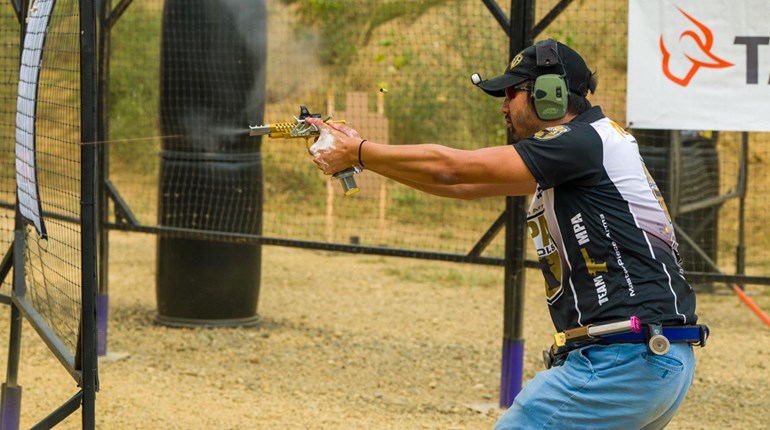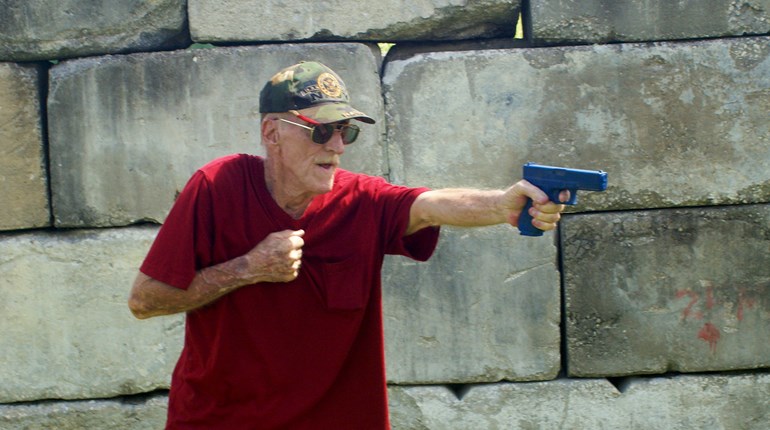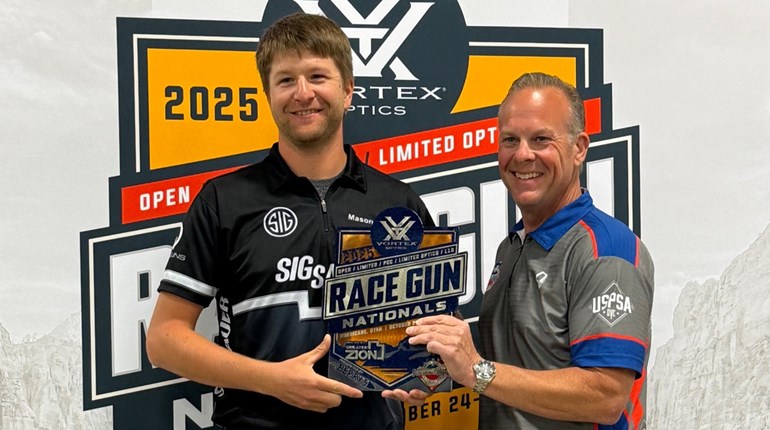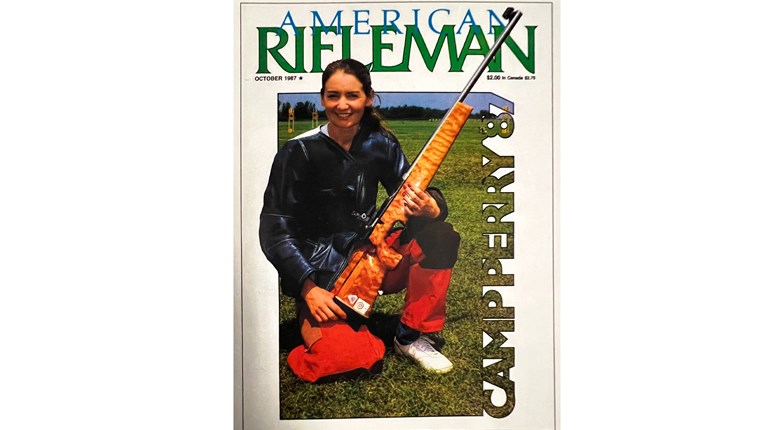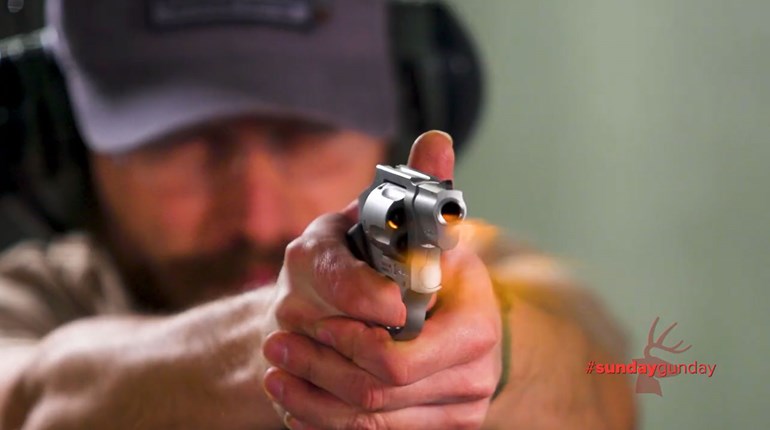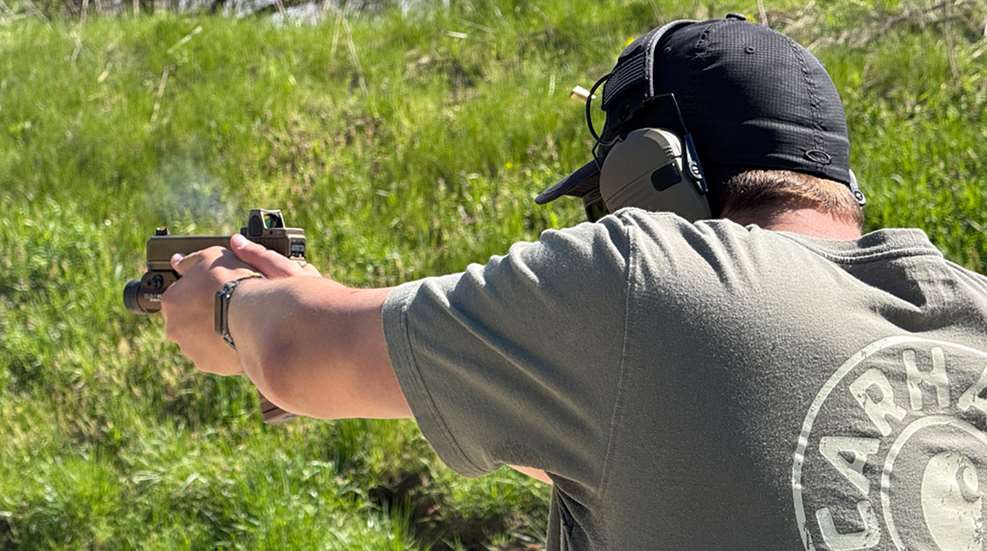
When people ask me what makes USPSA so special, my answer is simple: the Level 1 local club match. You can talk about Nationals, World Shoots, Super Squad runs, all the shiny gear and slick videos and yeah, all that stuff is exciting. But at the core, at the very center of what USPSA is—what keeps the sport alive and growing—are the weekend warriors showing up at their local clubs to shoot Level 1 matches. Without these matches, without the commitment of local clubs, volunteers and shooters, USPSA wouldn’t be what it is today.
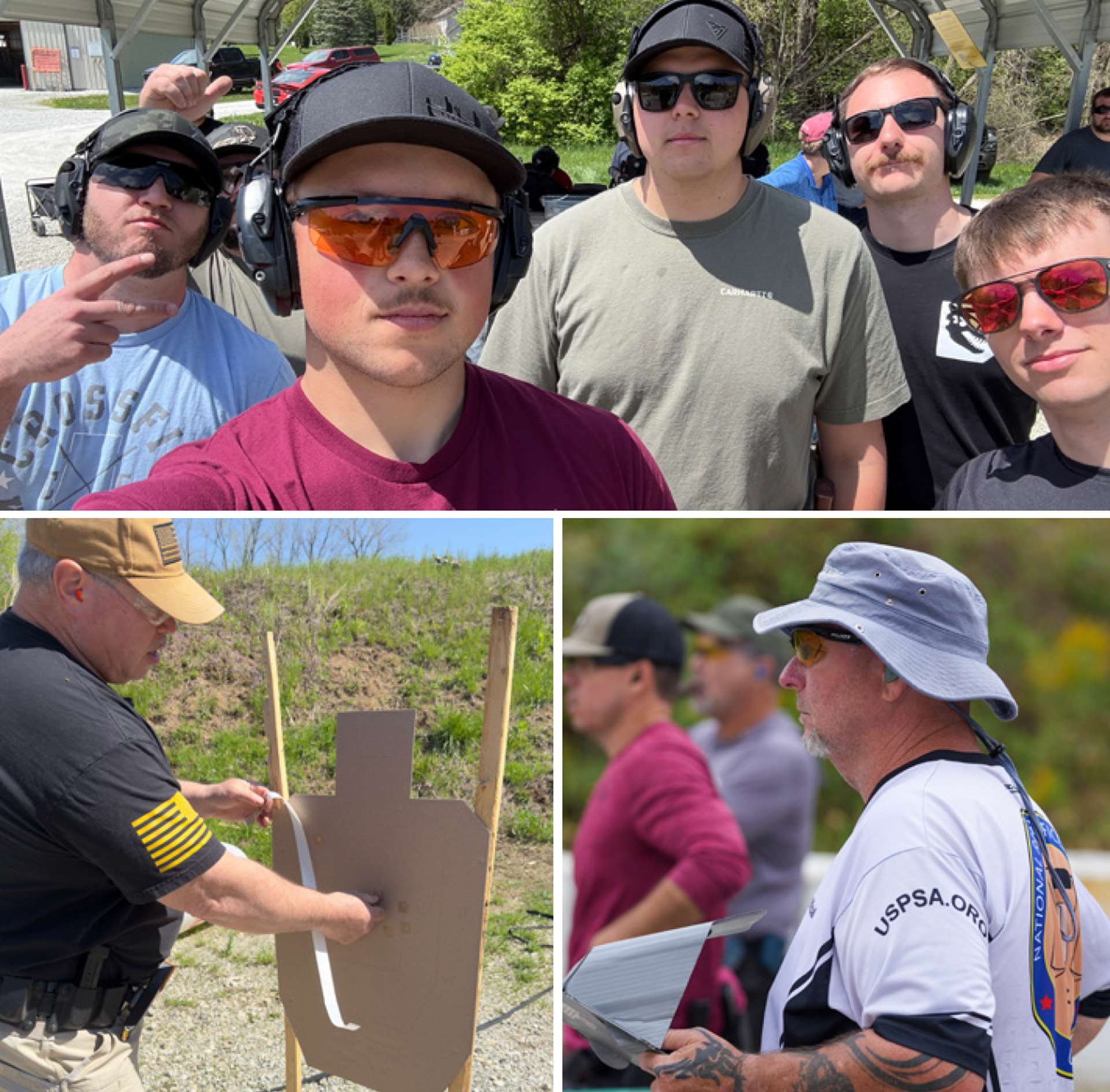
Let’s dig into why these matches matter so much, why you should be a part of them beyond just showing up and pulling the trigger, and how this simple concept started a movement that’s grown across the nation and the world.
THE ROOTS OF USPSA: IT ALL STARTED LOCAL
Back in 1976, a small group of like-minded shooters, led by Colonel Jeff Cooper, got together to create a new kind of competition, one based on practical shooting. They weren’t worried about trophies or titles. They wanted a test: real-world shooting skills measured through safe, practical courses of fire.
That led to the formation of the International Practical Shooting Confederation (IPSC), and in 1984, the United States Practical Shooting Association (USPSA) became the U.S. region of IPSC. USPSA grew from local matches—the same club matches we’re talking about today—into a national network of shooters. No matter how far we’ve come, the local match remains the bedrock of the organization.
The same spirit that drove those early matches still lives today. It’s that same “show up, work hard, shoot hard, have fun” attitude. Every time you attend a club match, you’re stepping into that legacy.
DISCOVERING USPSA: WHERE IT ALL BEGINS
For most shooters, their first taste of USPSA doesn’t happen at a major match; it happens at a Level 1 local club match. You show up with your gear, maybe a stock Glock, maybe a hand-me-down 1911 or new SIG and someone says, “Hey, have you ever shot USPSA before?”
You learn how to safely move with a loaded firearm under Range Officer commands. You figure out what “Make ready” and “if finished, unload and show clear” mean. You learn that “standby ... BEEP!” gets your heart racing like nothing else. And somewhere in all that, you find yourself grinning ear-to-ear. Because this is fun competitive, safe, challenging and ridiculously addictive fun.
Level 1 matches are where:
- New shooters learn the rules and the ropes
- Friendships are forged
- Skills are sharpened
- You get classified in the divisions
- Future National Champions take their very first shot
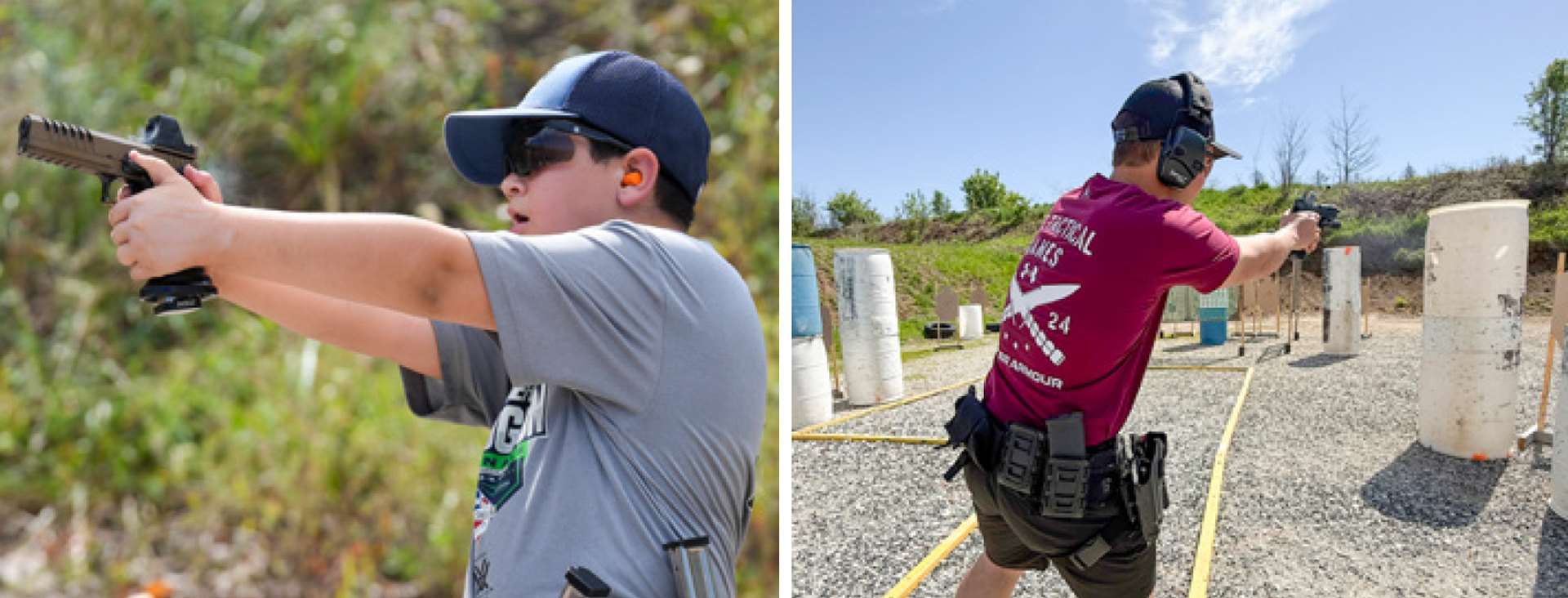
SAFE, FUN AND FAIR COMPETITION
USPSA’s motto “Safe, Fun, Fair” isn’t just marketing. It’s the DNA of every Level 1 club match.
Safe: Safety is the top priority, no exceptions. From clear Range Officer commands to proper stage design, everything revolves around making sure every shooter, whether brand new or seasoned, has a safe environment to enjoy the sport.
Fun: The excitement of running through a stage, making your plan and trying to execute it perfectly, is unmatched. Hitting that reload on the move, nailing a tough swinger, beating your buddy’s time—it’s pure, unfiltered fun.
Fair: Consistent application of the rules matters. Whether you’re shooting your first match or your thousandth, you’re judged by the same rulebook. Fair competition is what keeps shooters coming back and what keeps matches meaningful.
VOLUNTEERING: HOW MATCHES HAPPEN
Now here’s the thing—matches don’t “just happen.” There’s no “Match Fairy.” Every match you shoot is built by volunteers. Without people stepping up to help, there are no stages to shoot.
BE A RANGE OFFICER
Range Officers (ROs) are the backbone of safe competition. Becoming a certified Range Officer means you not only help your local club, but you deepen your understanding of the rules. It’s a way to give back and become a better shooter yourself.
And don’t think you have to be “good enough” to be an Range Officer. If you understand safety, care about fair competition and have a willingness to learn, you are ready.
HELP WITH STAGE SETUP
Setting up stages is a workout, but it’s also an education. You learn how to design stages that are challenging but fair, how to build safe courses of fire and how different elements (angles, distances and movement) affect stage strategy. Plus, when you help set up, you gain a deeper appreciation for the sport.
RUN THE TABLET
The Practiscore app in the tablet is your friend. Volunteering to keep score helps you stay engaged, learn more about the rules and see how stages are scored. It’s a low-pressure but critical way to help.
STAY FOR TEAR DOWN
Everyone loves to shoot, but sticking around after the last shot to help tear down and put everything away is just as important. Many hands make light work.
If you want to see more matches, bigger matches and better matches at your local club, the first step is volunteering.
GROWING USPSA: WELCOMING EVERYONE
Competitive shooting isn’t about where you’re from, what you look like or what you do for a living. It’s about a shared love of the sport.
At local matches, you see it all: teenagers shooting their first matches, veterans introducing grandkids to the sport, women who started to get their concealed carry license and ended up hooked on competition, and even retirees chasing that next classification on their membership card.
USPSA grows because local clubs create a welcoming environment where anyone of any background, any skill level can show up and shoot.
TESTING YOURSELF: WHERE SKILLS ARE FORGED
There’s nothing like a local match to test your skills. Maybe you’ve been practicing reloads at home, or working on transitions at the range. When the timer goes off at a match, you find out where you really stand.
Each stage is a new challenge. Each match is a new opportunity to improve.
And when you work matches as a volunteer, you learn even more. Watching shooters, running timers and setting stages—all of it feeds back into making you a better, smarter and safer shooter.
THE BACKBONE OF USPSA
Level 1 club matches are USPSA. They’re not “stepping stones” to bigger things—they are the big thing.
- They build community.
- They grow the sport.
- They teach skills.
- They create lifelong friendships.
- They uphold safety and fairness.
- They welcome new shooters.
- They are how USPSA survives and thrives.
When you show up to your local match, when you volunteer to set up, when you step up to RO a squad or help tear down, you’re not just helping your club. You’re shaping the future of USPSA.
The next National Champion? They might be the kid you RO’d last weekend.
The next major match director? They might be the guy learning how to set up walls and barrels with you on Saturday morning.
The next wave of passionate, diverse and dedicated shooters—they’re finding USPSA at the same local matches that have always been the heartbeat of the sport.
GET INVOLVED
So, next time you head to your local USPSA Level 1 match, think about everything that’s happening beyond your stage runs. Think about how much history, community and future is wrapped up in those stages.
And then ask yourself:
- Can I volunteer to RO today?
- Can I get there early to help set up?
- Can I design a stage for next month’s match?
- Can I run the tablet for my squad?
- Can I stay and help tear down?
The answer is yes. Because this is your sport. This is your community. This is USPSA.
And it all starts and continues at your local USPSA Level 1 club match.
See you at the range.
Article from the May/June 2025 issue of USPSA’s magazine.













